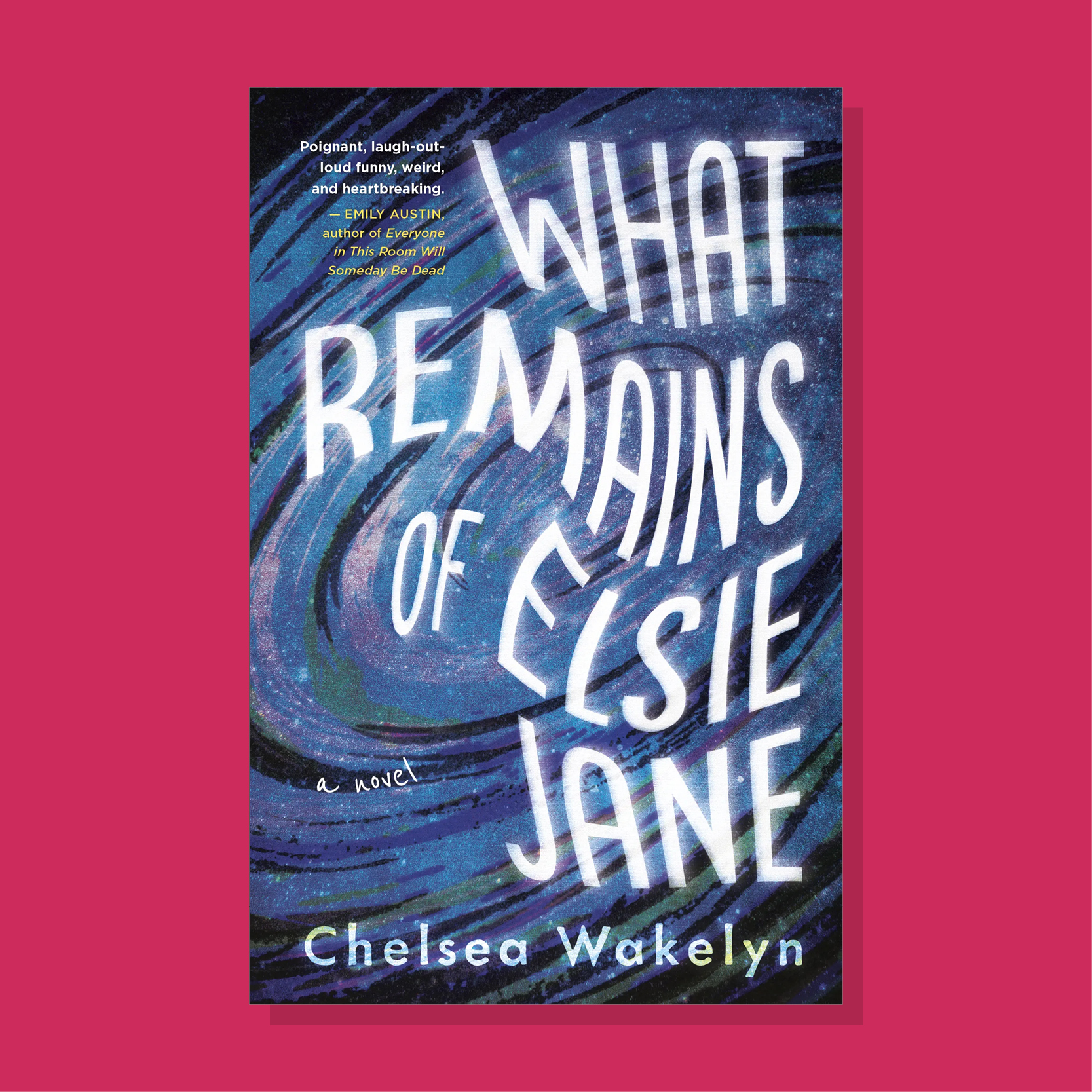
What Remains of Elsie Jane
A novel by Chelsea Wakelyn
Elsie explains what it’s like to be in love with Sam as he descends into addiction: “The addiction is a plagiarist, and the addicted person’s brain and personality are slowly, slowly, slowly overwritten with a new narrative but in the same pen.”
He died. Over the course of a year, Elsie sifts through memories and letters from her husband, excavates the dark corners of her grief, searches for a “replacement soulmate” (or perhaps punishes herself with doomed dates), and concocts an unlikely plan to save her dead love because she cannot find a way to be at home in this timeline.
Elsie is undoubtedly shattered and flailing, but she remains intellectually curious and darkly witty about her own disintegration, and the nature of grief: “At its core, grief is a very self-involved and childish way of being in the world. There must be a reason we regress to this childlike state. It must offer some protection, some comfort, even if it feels like being left alone in a crib for three days with an evil clown stuffy grinning at you from the dresser.”
Elsie prepares in earnest to quantum-jump to a dimension where she’s able to save Sam, aided by a wizard who answered her Craigslist ad. And it often seems as though she’s right to want to find a better timeline, not only to retrieve what she’s lost, but also because this world is a fully unsuitable place to try to recover from a crisis.
There’s an uncanny otherness about her encounters, farcical and hostile. She receives threatening messages from a bad date who has “all the hallmark characteristics of a super-villain but none of the power or charisma.” He feels entitled to her attention and is completely oblivious to what she wants or needs. An angry mob in a fast food restaurant yell at her and her children over some invented drama. Have they decided she deserves their wrath simply because she appears unkempt and unwell?
I recognize vignettes like this as commonplace, and that’s why it feels like horror. It’s a reminder that this is not a hospitable world for people who are adrift in a crisis. The more in need of compassion and support a person is (like those who are wrestling with addiction or with grief), the more likely they are to be further alienated and stigmatized by the people all around them.
I am grateful for a candid story about losing a partner due to addiction, which stirs up undigested chunks in my guts that I haven’t known how to express, a bunch of square peg feelings that won’t go through the round holes of reason into language. Elsie is depicted so clearly in her absurd state of loss, a powerful feat which resonates with shards of unspoken loss that live in me. I needed this book, and maybe you do, too.
“To have great pain is to have certainty; to hear that another person has pain is to have doubt.” – Elaine Scarry
— Chelsee Damen, Operations Manager
